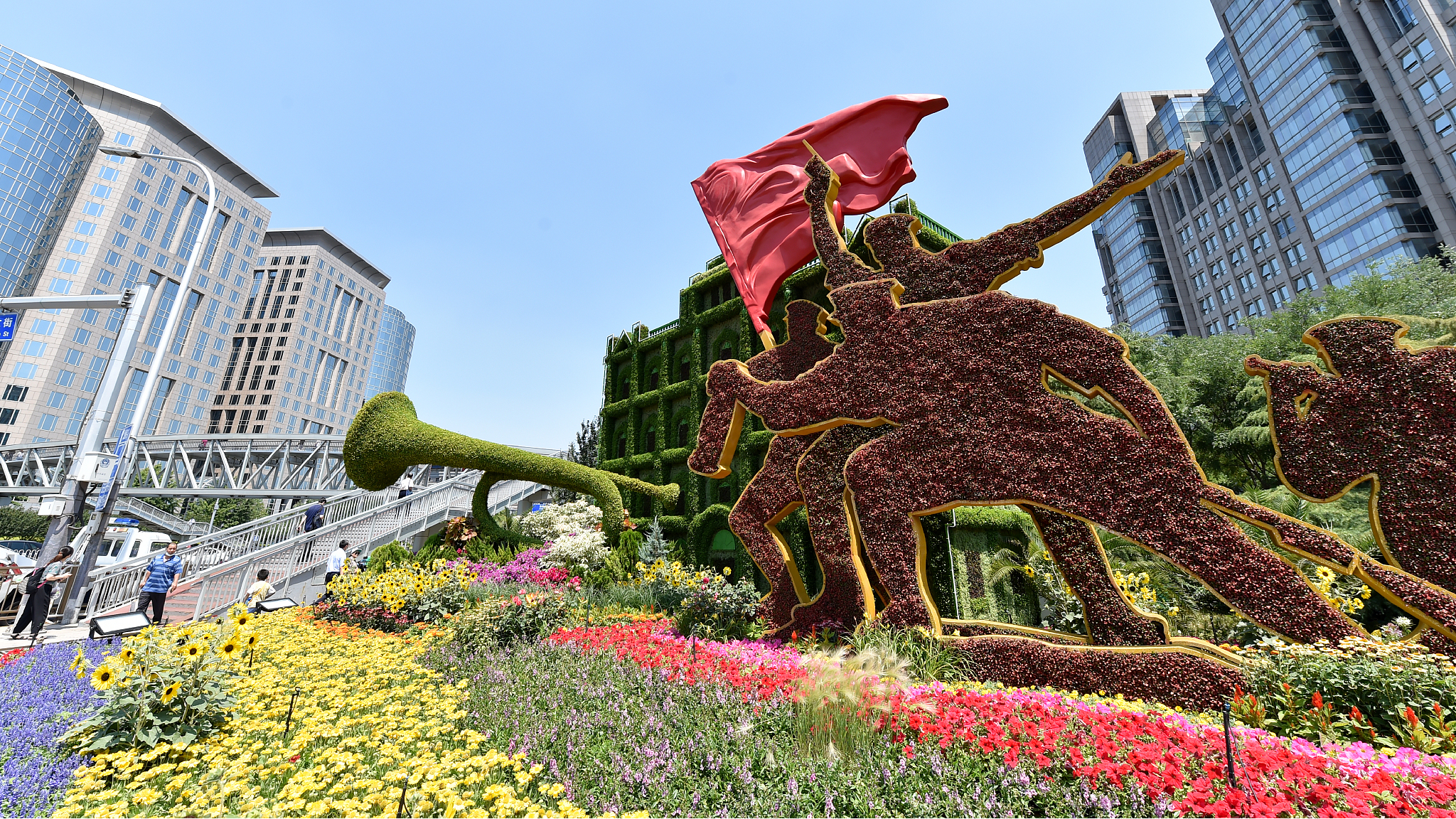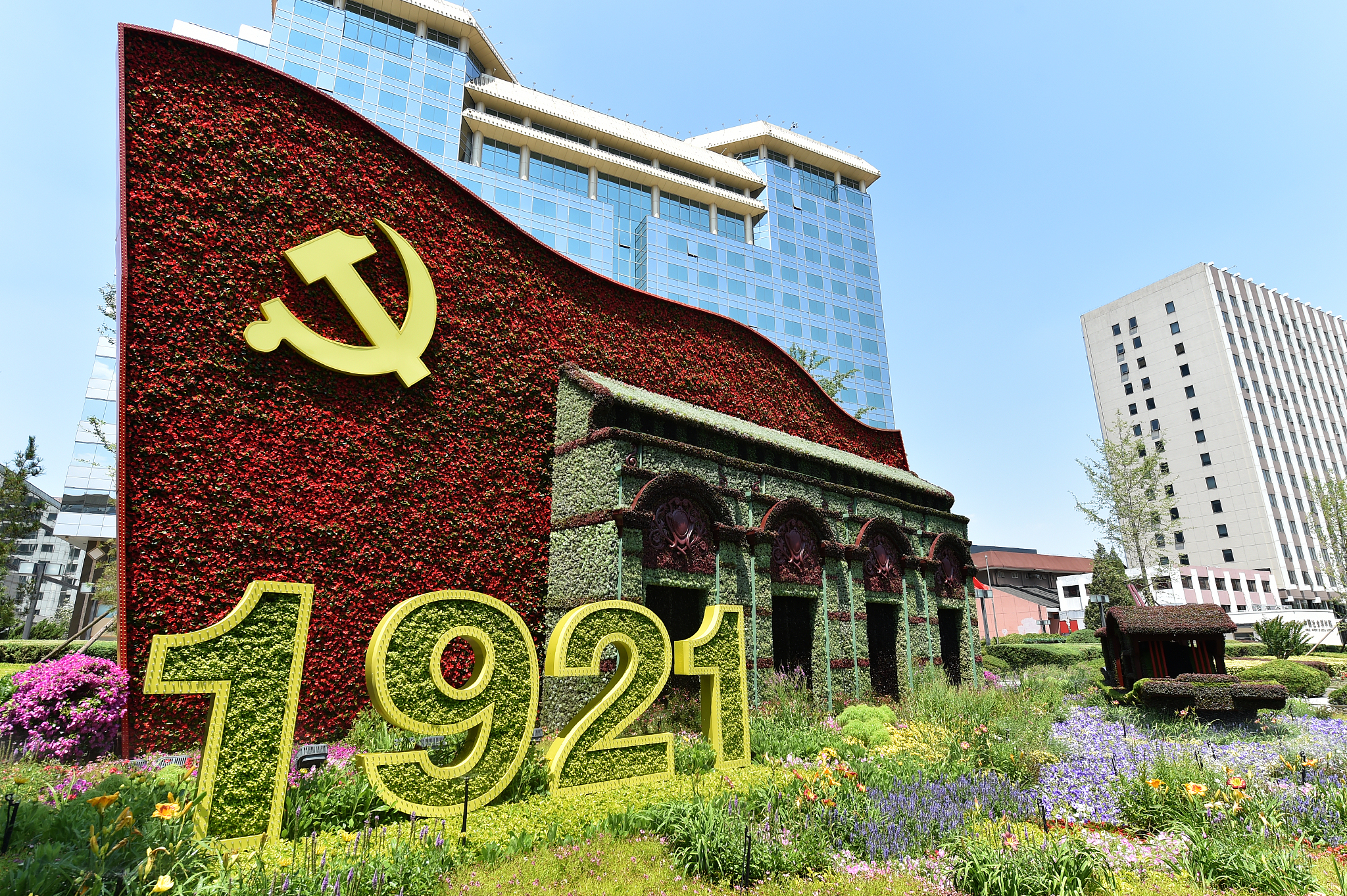
Editor's note: Timothy Kerswell is a research fellow at the Chinese University of Hong Kong (Shenzhen). He lived in Macao for seven years, working as an assistant professor at the University of Macao. The article reflects the author's opinions and not necessarily the views of CGTN.
2021 marks the 100th anniversary of the foundation of the Communist Party of China (CPC). In an international atmosphere where human rights are raised as a point of contention, it is worth looking at some of the significant achievements the CPC has accomplished in advancing human rights. Chinese people are living better than they have before, and the CPC's historical role is a major reason why.
With the progress China has made, it is sometimes easy to forget the difficulties that the CPC needed to overcome to reach this milestone anniversary. Backward social and economic structures, the semi-colonization brought about by the Opium War and the sustained attempt at China's colonization and destruction by Japan had reduced the country to ruins by the time the CPC took over in 1949. The average life expectancy was around 35, 80 percent of the population suffered from yearly experiences of severe hunger, and roughly 80 percent of the population were illiterate. Hard as it is to imagine in 2021.
The CPC's story begins as a quest for popular sovereignty against a vast array of internal and external forces determined to maintain China's subjugation and defend antiquated social systems which denied ordinary people any semblance of rights. Rights depend not on abstract universal values, but rather on concrete national conditions. Under the leadership of the CPC, many workers and peasants took part in politics for the first time.
This legacy continues to this day with the right to vote and stand in elections enshrined as a basic right, allowing ordinary people to participate in government. The National People's Congress is one of the most representative political bodies in the world including representation from China's many ethnic nationalities, and substantial representation of worker and peasant delegates.
China practices consultative democracy through the Chinese People's Political Consultative Congress. In the last three years, thousands of proposals were made by ordinary people to the CPPCC, and many were adopted or further developed. Grassroots democracy is practiced through village and urban resident committees. What's more, with roughly 92 million members, the Communist Party of China is one of the largest and most broadly representative parties in the world.
In the early stages, the country was anything but rich, and yet the CPC, through its close links with the broader working population, accomplished a lot with very few resources. Long before its rise to power across China, the CPC prioritized rights promotion and especially the right to subsistence as part of its agrarian revolutionary strategy. The party built up public support for land reform over decades under pressure from defenders of the old feudal system, and Japanese imperialists. Land reform in China brought the end of feudalism. It was one of the most significant events in rights promotion in the 20th century, providing a sustainable livelihood to millions of people.
The CPC also engaged in a long term campaign to promote women's rights in China. Starting in the revolutionary period, the CPC enforced laws against polygamy, abolished arranged and transactional marriages, and ended concubines in the areas of China which came under its control. The promotion of free marriage, and the sharing of personal property after marriage gave women a political and economic foundation for greater participation in public life. After the liberation of China, one of the first laws that was introduced was the Marriage Law which revolutionized China's social structure and gender relations. These decisions are partly why China has among the highest female labor force participation rates in the world, and is a society characterized by high levels of political and economic freedom for women.

In celebration of the 100th anniversary of the founding of the Communist Party of China, 10 groups of three-dimensional flower beds were unveiled in Beijing, June 22, 2021. CFP
In celebration of the 100th anniversary of the founding of the Communist Party of China, 10 groups of three-dimensional flower beds were unveiled in Beijing, June 22, 2021. CFP
The CPC also promoted the idea of education as a right. In pre-liberation China the idea that working class or peasant children had an equal right to education was a scarcely imaginable dream. That dream turned into reality in each of the territories the CPC controlled with schools, training sessions, night classes and reading groups set up to begin a long struggle against illiteracy. A major reason for China's recent economic success has been a broadly literate workforce.
This is no accident, it's the result of the CPC policy of prioritizing educational investment toward primary education. This was a brave policy decision that went against the grain of international opinion, and most newly independent developing countries prioritized spending on the university sector. It was only in later decades that conventional development wisdom began to shift toward universal primary education, confirming the decision China had made decades before. It won't be the last time that the world follows China's example.
Having laid the foundation for development by educating the population and reforming the social and economic structure, further improvements in rights depended on economic development. China's reform and opening-up period witnessed the single greatest poverty reduction in human history, creating the economic foundations for China's rejuvenation and its later elimination of poverty. Impressively, China has achieved these milestones without relying on external aggression like slavery or imperialism or support from an imperialist power.
China has always been able to punch above its weight on major achievements as it did with the Two Bombs and One Satellite project. However, we are now in the new era where under the stewardship of the CPC, China can do things on a mass scale that were previously unthinkable like ending poverty in 2020, or sharing prosperity with other countries through the Belt and Road Initiative. China and the CPC will continue to face numerous challenges in the future. Nonetheless, the party has a long track record of promoting human rights and improving people's livelihoods. The CPC has every reason to feel confident to continue its people-centered mission.
(If you want to contribute and have specific expertise, please contact us at opinions@cgtn.com.)

